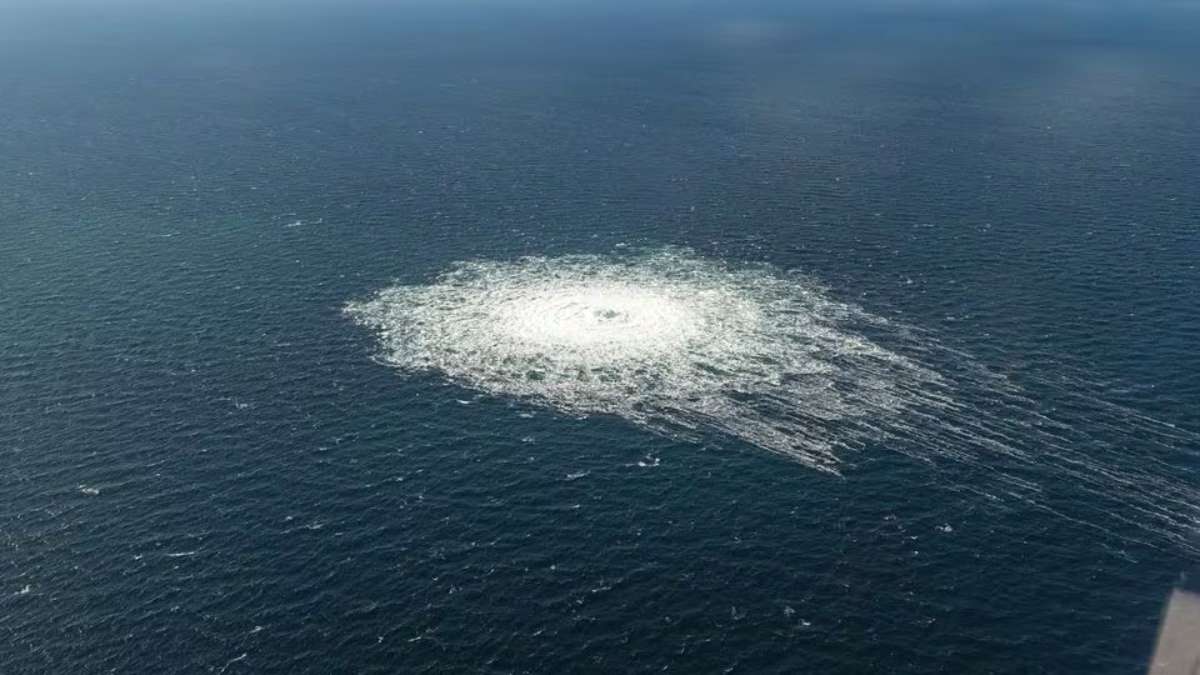
[ad_1]

Stockholm: Swedish prosecutors on Wednesday said they would drop their investigation into explosions on the Nord Stream 1 and 2 gas pipelines and hand over uncovered evidence over to German investigators. The multi-billion dollar pipelines transporting Russian gas to Germany under the Baltic Sea were ruptured by several blasts in the Swedish and Danish economic zones in 2022, releasing large amounts of methane into the air.
“The conclusion of the investigation is that Swedish jurisdiction does not apply and that the investigation therefore should be closed,” the Swedish Prosecution Authority said in a statement. This came after Swedish prosecutors confirmed traces of explosives found on the site that conclusively indicated towards an act of sabotage on the gas pipelines.
Sweden, Denmark and Germany launched separate investigations into the Nord Stream blasts, each tightly controlling information. The Danish and German probes are still ongoing. “Within the framework of this legal cooperation, we have been able to hand over material that can be used as evidence in the German investigation,” the Swedish prosecution authority added.
Russian President Vladimir Putin had previously accused the West of sabotaging Russia-built gas pipelines under the Baltic Sea to Germany, a charge that has been vehemently denied by the United States and its allies, as Norwegian researchers published a map projecting that a huge plume of methane released by damaged pipelines will travel over large swaths of the Nordic region at the time.
European nations, which had been reeling under soaring energy prices caused by Russia’s invasion of Ukraine, have noted that it is Russia, not Europe, that benefits from chaos in the energy markets and spiking prices for energy.
Why are the gas pipelines important?
Nord Stream 2 is a 1,230-kilometer-long (764-mile-long) natural gas pipeline under the Baltic Sea, running from Russia to Germany’s Baltic coast. It runs parallel to an earlier Nord Stream pipeline and would double its capacity, to 110 billion cubic meters of gas a year. It was built so Russian energy giant Gazprom could send gas to Europe’s pipeline system without using existing pipelines that run through Ukraine and Poland.
Following an extensive investigation, the Swedish prosecutors concluded that nothing had emerged to indicate that Sweden or Swedish citizens were involved in the attack which took place “in international waters”. “Against the background of the situation we now have, we can state that Swedish jurisdiction does not apply,” Public Prosecutor Mats Ljungqvist said in a statement.
Ljungqvist added that “the German investigation continues and due to the secrecy that prevails in international legal cooperation, I cannot comment further on the cooperation that has taken place.” He noted “the good cooperation” with Denmark and Germany “where we have continuously shared information and status reports”.
If no conclusive evidence is found by either of the remaining investigations, the mystery behind one of the most significant acts of infrastructure sabotage in modern history could remain unsolved. The attacks on the pipelines have prompted energy companies and European governments to beef up energy infrastructure security.
Even before Putin’s allegations, the US had strongly rejected any claims that it might have sabotaged the Nord Stream pipelines. “The idea that the United States was in any way involved in the apparent sabotage of these pipelines is preposterous. It is nothing more than a function of Russian disinformation and should be treated as such,” said then-US State Department spokesperson Ned Price.
The US has long been opposed to the two pipelines and had repeatedly urged Germany to halt them, saying they increase Europe’s energy dependence on Russia and decrease its security. Since Russia’s invasion of Ukraine in February, European nations have charged that Putin is using “energy blackmail” and reducing gas flows to Europe to divide the European Union’s support for Ukraine.
(with inputs from agencies)
ALSO READ | Turkey approves Sweden’s NATO membership bid after 20-month-long delay
[ad_2]
Source link